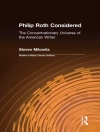This book explores the paradox that the Gothic (today’s werewolves, vampires, and horror movies) owe their origins (and their legitimacy) to eighteenth-century interpretations of Shakespeare. As Shakespeare was being established as the supreme British writer throughout the century, he was cited as justification for early Gothic writers’ fascination with the supernatural, their abandoning of literary ‘decorum, ‘ and their fascination with otherness and extremes of every kind. This book addresses the gap for an up to date analysis of Shakespeare’s relation to the Gothic. An authority on the Gothic, E.J. Clery, has stated that ‘It would be impossible to overestimate the importance of Shakespeare as touchstone and inspiration for the terror mode, even if we feel the offspring are unworthy of their parent. Scratch the surface of any Gothic fiction and the debt to Shakespeare will be there.’ This book therefore addresses Shakespeare’s importance to the Gothic tradition as a whole and also to particular, well-known and often studied Gothic works. It also considers the influence of the Gothic on Shakespeare, both in-print and on stage in eighteenth- and nineteenth-century Britain. The introductory chapter places the chapters within the historical development of both Shakespearean reception and Gothic Studies. The book is divided into three parts: 1) Gothic Appropriations of ‘Shakespeare’; 2) Rewriting Shakespearean Plays and Characters; 3) Shakespeare Before/After the Gothic.
İçerik tablosu
1) Gothic Appropriations of ‘Shakespeare’; 2) Rewriting Shakespearean Plays and Characters; 3) Shakespeare Before/After the Gothic.












